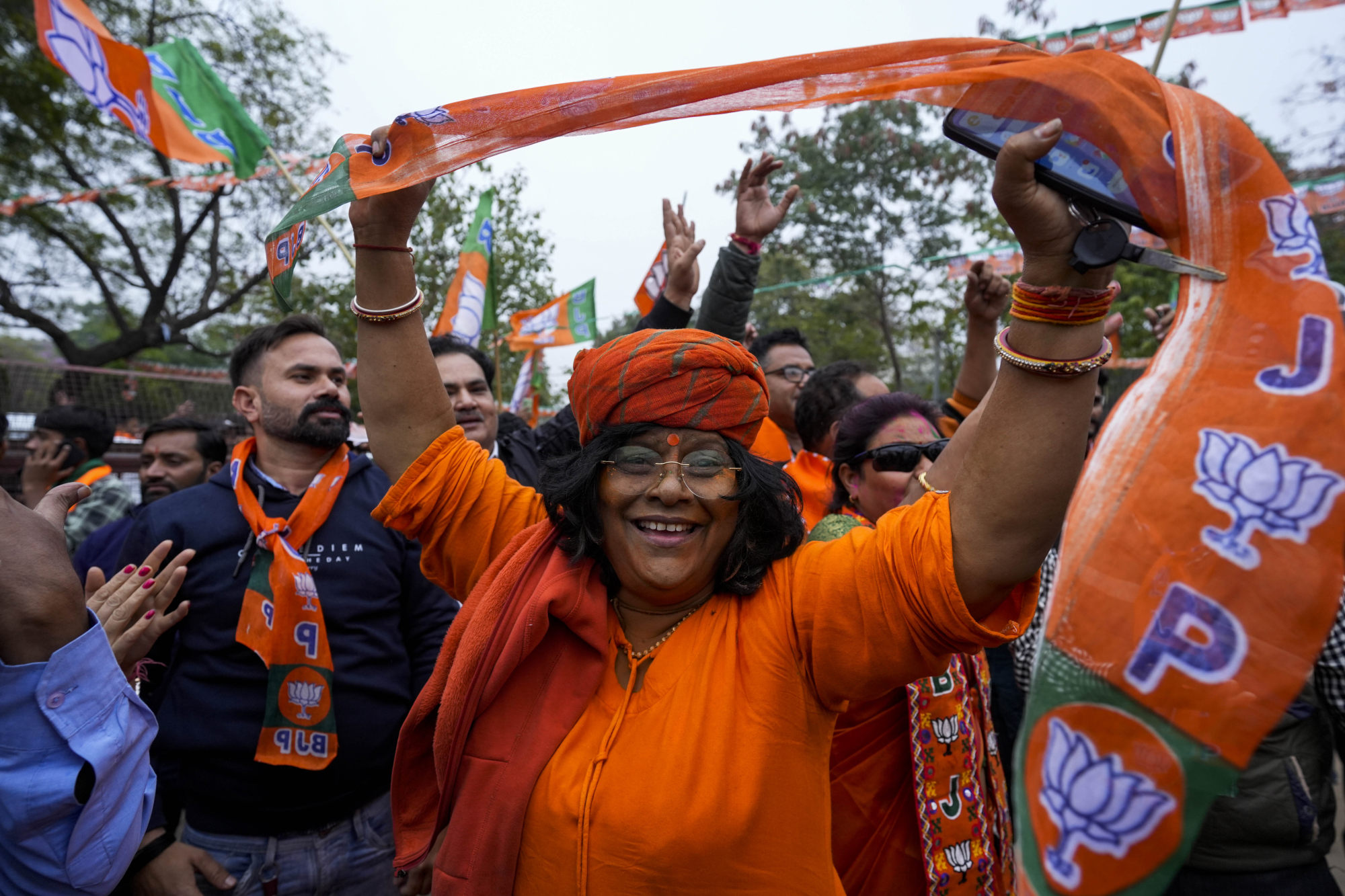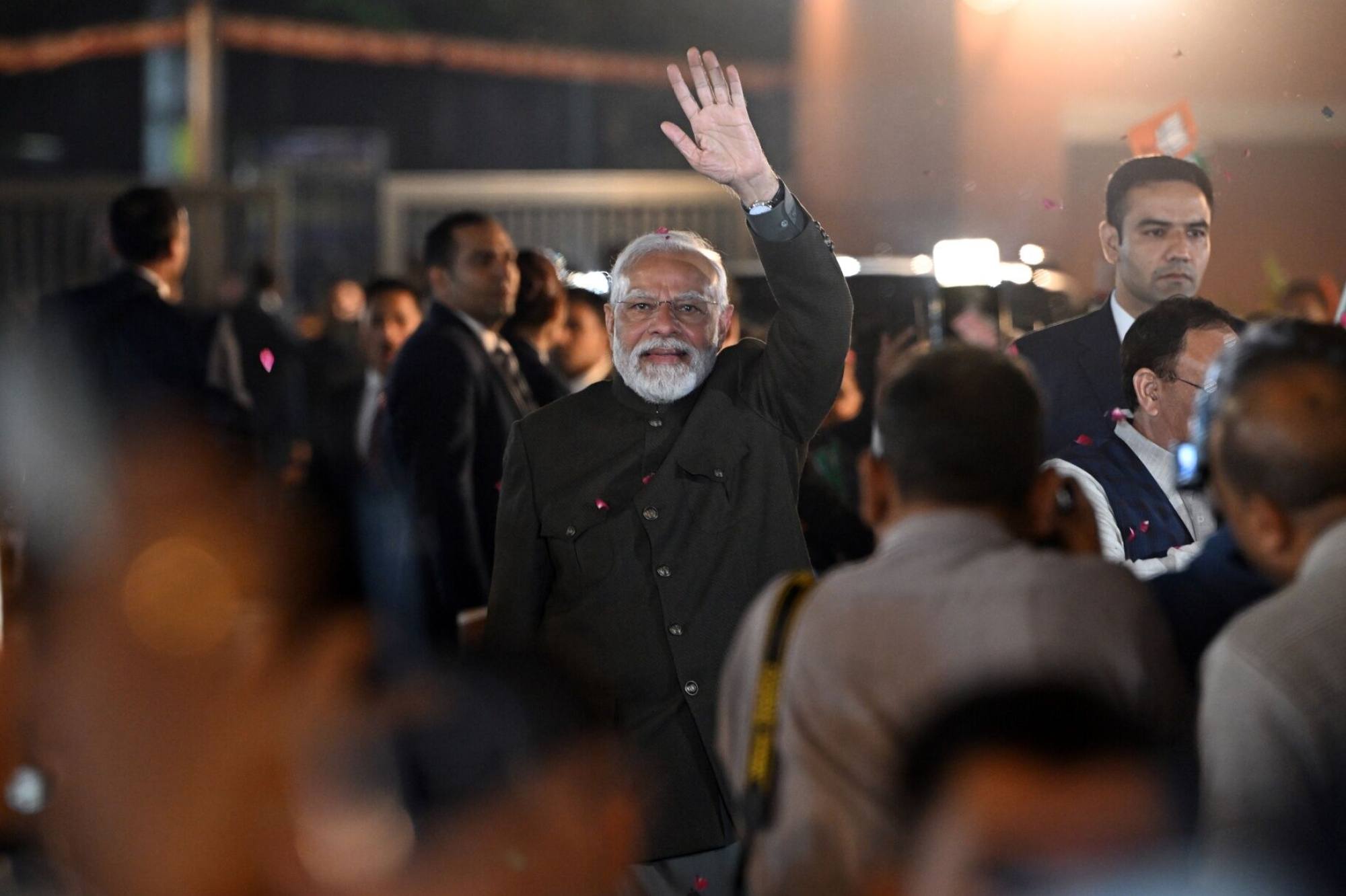
India’s ruling BJP wins big in state polls but can it extend victory into 2024 national elections?
- BJP’s win in the north and central states means the party has consolidated its stronghold and has an edge in national polls next year, observers say
- Results show ‘complete decline’ of Congress party’s support in north India and could even erode the opposition INDIA coalition
The Congress party secured victory in the southern Indian state of Telangana, where a regional party had held power for two consecutive terms. But the win in the north and central states means that the BJP has consolidated its stronghold, observers said.

That matters because the Hindi-speaking region accounts for around 200 of the 545 parliamentary seats in the lower house, said Yashwant Deshmukh, an independent political commentator and founder of New Delhi-based research firm C-Voter.
“The results show that there is a complete institutional decline of the Congress party in the north. The sheer organisational strength of the BJP came through,” he said.
One of the biggest surprises was BJP’s resounding victory in the central state of Madhya Pradesh, where it has been in power for 18 years and was expected to face an anti-incumbency wave. In the adjoining state of Chhattisgarh, Congress was expected to fare well because it had a competent government in place.
The results are likely to boost financial markets because it signals that a stable government is likely to continue in the country. US-based investment banking firm Jefferies in October said the Indian stock market could fall by 25 per cent if the BJP lost the national polls. The benchmark Bombay Stock Exchange Index was up 1.5% in afternoon trading on Monday.

India’s splintered opposition parties have united under the Indian National Developmental Inclusive Alliance (INDIA) to challenge the BJP by declaring one common candidate in a majority of parliamentary seats to avoid undercutting each other’s votes.
But they have yet to work out the detailed seat-sharing arrangements and were likely waiting for the results of the state elections, which had been billed as the semi-finals to the national elections.
“The state election results are going to have a massive impact on the national elections in 2024. It is going to dampen the enthusiasm of the Congress party’s workers and likely to reduce its bargaining power with other opposition parties for seats,” said Nilanjan Mukhopadhyay, an independent political commentator.
“It may even lead to the frittering away of the nascent INDIA alliance,” he said. “In principle, they have agreed to one-on-one contests, but the task has become all the more difficult now because you don’t have any dominant party that can demand seats.”
Modi faces his biggest test yet as India’s opposition parties unite
The BJP’s chances had appeared uncertain following recent losses in state elections in Himachal Pradesh and Karnataka.
In 2019’s parliamentary elections, the BJP won 303 of 545 seats in the lower house – a clear majority – after securing 37 per cent of the vote with the help of its staunch Hindu support. Losses in state polls would have dented its chances of securing a majority independently again, analysts say.
Modi’s stamp
But the party’s well-oiled election machinery, welfare programmes as well as appeals to the Hindu majority population swung the votes its way, analysts said.
“BJP stole victory from the jaws of defeat,” Mukhopadhyay said. “I think this victory must be credited to Modi, the BJP’s larger Hindutva narrative plus welfarism.”

Modi had embarked on a whistle-stop campaign in all the states and had not declared a chief ministerial candidate for any of the states, though local leaders tend to have a big impact on provincial elections.
The Congress party had fielded Ashok Gehlot in Rajasthan and veteran leader Kamal Nath in Madhya Pradesh. But months of infighting between Gehlot and his deputy Sachin Pilot, as well as lack of clear backing for Nath by the party’s central leadership, blighted their chances.
The Congress party also failed to pull in regional party leaders sufficiently, Deshmukh said.
Can India’s Congress turn tables on Modi’s BJP on back of successful state polls?
Opposition parties had separately tried to canvas more support by raising a demand for more caste-based reservations in jobs and educational institutions to counter the BJP’s strategy of tapping the Hindu majority, but the tactic has not worked, analysts said.
“BJP’s Hindu campaign will probably now reach a crescendo in the coming weeks and months in the run-up to the parliamentary elections,” Deshmukh said, highlighting that a Hindu temple in the northern Indian town of Ayodhya on the set of a former mosque was set to be inaugurated next month.
The campaign to build a temple has been a key programme for the BJP for decades.

